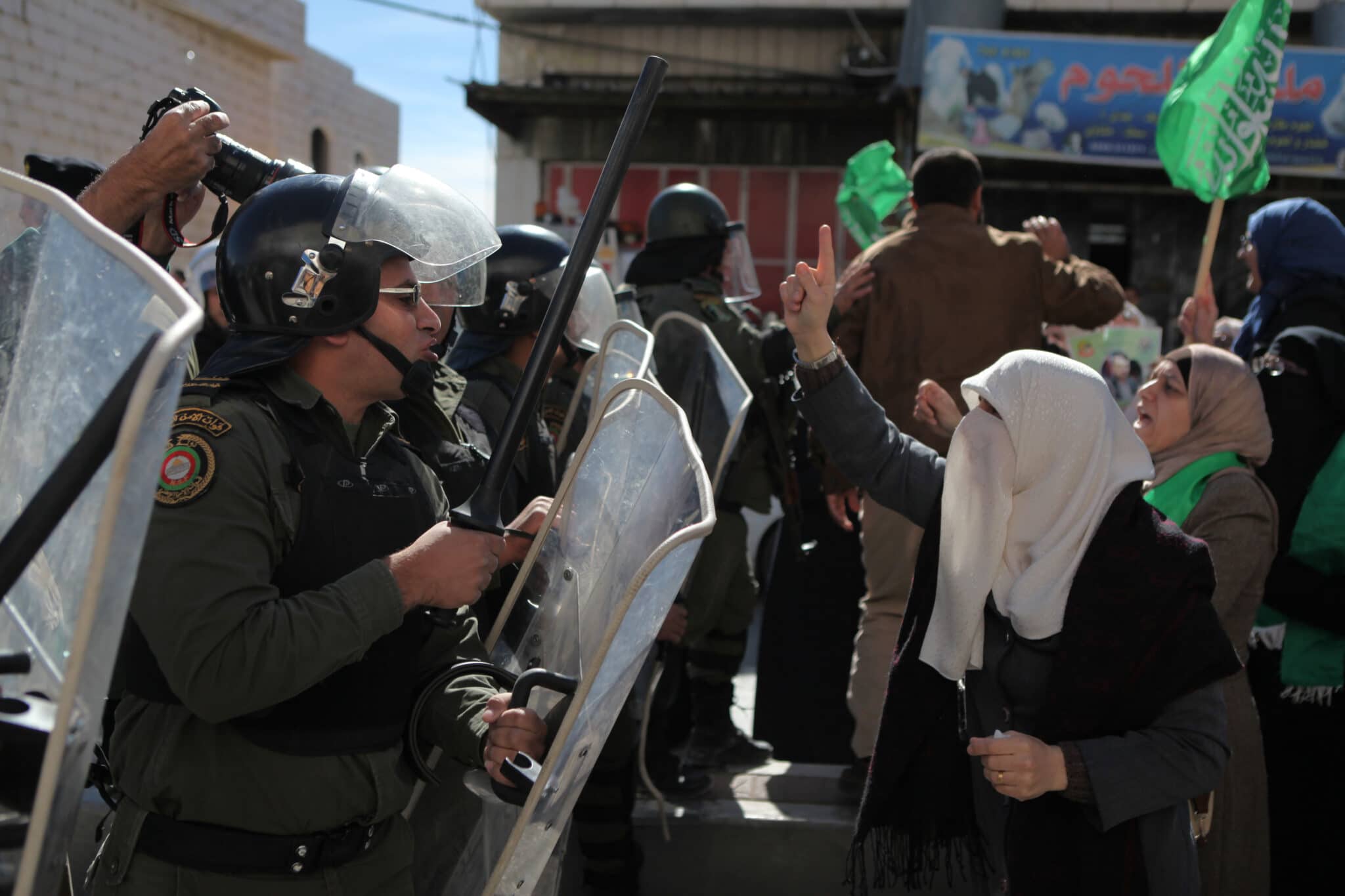
It is impossible to tackle human-rights issues in Palestine without considering the nature and types of authorities that govern Palestine and Israel, as an occupying authority. According to reports by Palestinian, Israeli, and international human-rights organizations, 2014 was one of the worst years in decades for human rights in Palestine. Violations were measured by the number of deaths and injuries and the destruction of infrastructure, whether as a result of the recent war in the Gaza Strip or of the repressive practices by the Israeli occupiers of the West Bank and East Jerusalem.
According to the January 2015 report of the UN Office for the Coordination of Humanitarian Affairs (OCHA), more than 2400 Palestinians, mostly civilians, died in the Gaza Strip in 2014 and more than 13,000 were wounded. In the West Bank, there were 56 deaths caused by Israeli forces in 2014, according to the OCHA report. That is double the number of deaths in 2013 and six times the number killed two years ago. More than 5800 Palestinians in the West Bank were wounded in 2014, as a result of oppression and the violation of Palestinian rights, as documented by OCHA.
These violations include the increase in Israeli settlement construction in the occupied territories (West Bank and East Jerusalem) and the confiscation by the Israeli government of Palestinian land in order to build the separation wall, which has continued throughout the Netanyahu government’s rule. Tens of thousands of Palestinians lost their property for settlement construction or for the building of the wall.
In addition to the displacement of rural Palestinians, Palestinians in East Jerusalem have also faced large-scale displacements as a result of land confiscations. Throughout the West Bank, the daily humiliation of Palestinians continues at permanent and “flying” military checkpoints.The Israeli blockade or embargo on people and goods in Gaza has kept 1.8 million hostages in an open-air prison. Imports of life-saving medical supplies and essential commodities are delayed or made impossible by complicated Israeli security procedures.The blockade obstructed reconstruction after each of the three devastating wars that occurred in less than six years, and it is suffocating the economy.
Israel’s violation of international laws that are intended to protect civilians under occupation have been documented for decades, but now Palestinians also suffer from human-rights violations perpetrated by the Palestinian National Authority(PA). The PA does not violate the human rights of its citizens on the same scale as the Israeli occupier, and it has not yet created catastrophic internal divisions, but the increase in human-rights violations has been documented for several years and is becoming critical.
According to human-rights organizations documenting violations in Palestine, 29 Palestinians have died from torture in Palestinian prisons. After the political split between the West Bank and Gaza, ruled by opposing parties—Fatah and Hamas, respectively—human rights have suffered severely.
Palestinian Authority and Hamas violations of human rights

The Palestinian Independent Commission for Human Rights, the Palestinian Center for Human Rights, and al-Haq, the Palestinian human-rights organization, stressed in their annual reports that there has been a decline in respect for human rights and public freedoms of expression every year since 2007. They concluded that the increase in human-rights violations and suppression of freedom of expression is due to the competition and mutual animosity between Fatah and Hamas and their inability to reconcile. The ineffectiveness of the Palestinian legislative council in enforcing transparency on the executive branch and the security forces has further weakened freedom of expression and human rights in Gaza and the West Bank.
Human-rights organizations have blamed the decline in human rights on the Palaestinian security forces in the West Bank and Gaza Strip. In both areas, the arbitrary detention of political activists on the pretext of security or criminal behaviour has targeted all sorts of dissenters, including journalists and members of political organizations. Many bloggers, social-media commentators, and journalists have been arrested for sarcastic criticisism of ruling political figures. The most astonishing aspect of the arrests and legal procedures is that the critics are often tried in military rather than civilian courts and are often denied access to an attorney.
The increasing human-rights violations have been possible largely because of a lack of oversight and transparency, which are usually ensured by the legislative branch of government. But the disabled Palestinian legislative council, which has been ineffective and unrepresentative since the internal Palestinian division created two de facto governments—one led by the Fatah Party, in the West Bank, and one led by the Islamic Resistance Movement, Hamas, in the Gaza Strip—has been unable to play this role.
Politically, the current internal Palestinian crisis was facilitated by the international community, which funds the PA, demands that the PA rein in critics of the Oslo Agreement with Israel, and expects the PA to respect international human-rights standards. There are contradictions in the requirements that the PA has to fulfil in order to continue to receive funding. Not everyone in the Palestinian community is aware of the difference between freedom of expression and incitement.
As a result, the various government and political factions have developed a great deal of animosity and distrust. Also, the heads of the security authorities in the West Bank and Gaza are not sufficiently trained in the culture of respect for opponents and the human and civil rights of all citizens, regardless of political affiliation and opinion.
In the 20 years since the Oslo Agreement was signed, international organizations have spent more than one billion dollars to promote human rights, gender equality, human rights, and political socialization, but human rights in Palestine remain a mirage.
The lack of political participation and policies of exclusion have led to the deterioration of basic human rights in both Palestinian territories. The continued Israeli occupation of the West Bank and East Jerusalem and the continuing blockade of Gaza by sea, air, and land have paved the way for the growing repression.


